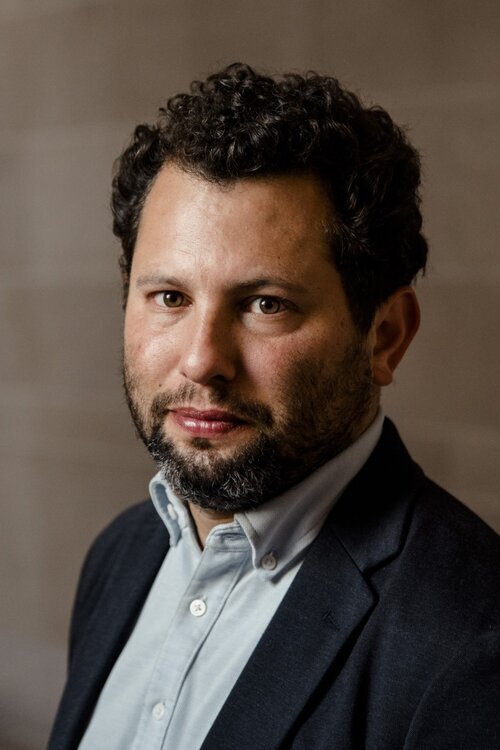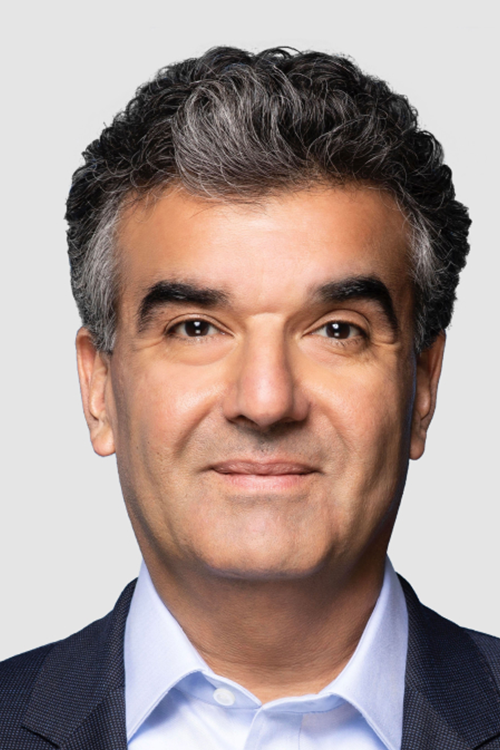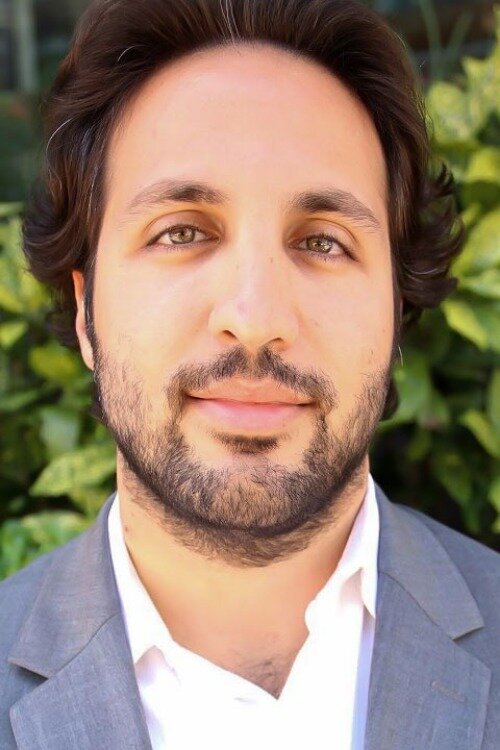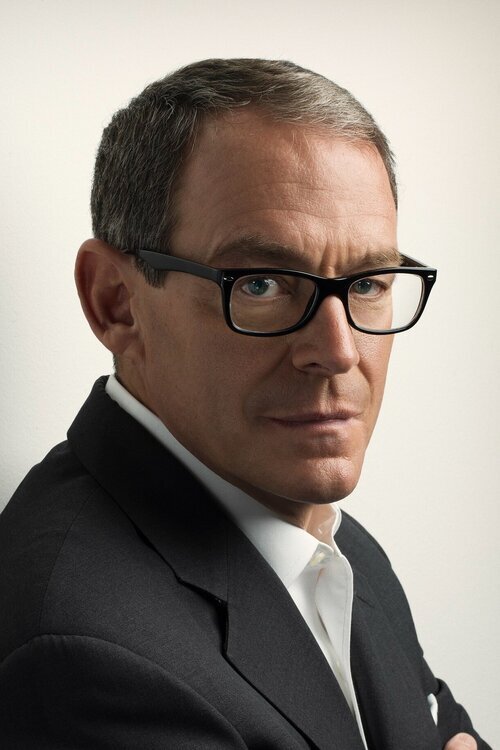“[In emerging markets,] smartphones bring a computer to the world for the first time and the Internet with it. That’s a very, very important part of what I think is the fastest growing sector in the world.”
Kevin Carter is the Founder & Chief Investment Officer of EMQQ. In this episode, Kevin shares is introduction to emerging markets where he’s a leader in the space. He analyzes the exposure to Chinese state-owned companies within ETFs and potential risks. He explains the unique advantages emerging markets enjoy due to the lack of legacy tech infrastructure seen in more advanced countries like the United States. Carter offers his investment outlook in India and Latin America, and lays out his approach to measuring a company’s growth.
While he considers himself an active “value” investor first and foremost, he has collaborated with Princeton economist and indexing legend, Dr. Burton Malkiel, for more than 20 years. Their work together began in 1999 with the development of eInvesting, a pioneer firm in fractional share brokerage that was acquired by ETRADE in 2000. In 2002 they founded Active Index Advisors, a pioneer in so-called “direct indexing” that was acquired by Natixis Asset Management in 2005. In 2006, their efforts turned to China and Emerging Markets with Dr. Malkiel’s publishing of “Investment Strategies to Exploit Economic Growth in China” and the subsequent book From Wall Street to the Great Wall. Working with Guggenheim Partners, they launched several China focused ETFs on the NYSE.
LISTEN AND SUBSCRIBE
MODERATOR
SPEAKER
Kevin Carter
Founder & Chief Investment Officer
EMQQ
Anthony Scaramucci
Founder & Managing Partner
SkyBridge
TIMESTAMPS
0:00 - Intro and background
5:45 - Emerging markets
7:48 - Advice to young investors
10:27 - Exposure to emerging markets through US companies
12:52 - State-owned companies in ETF’s
17:00 - Smartphones in emerging markets
20:25 - Technological leapfrogging in emerging markets
23:20 - Super apps
28:26 - Chinese government crackdowns and investor concerns
42:15 - Investing in India
44:48 - Investing in Latin America
48:12 - Measuring growth
EPISODE TRANSCRIPT
John Darsie: (00:07)
Hello everyone, and welcome back to SALT Talks. My name is John Darsie. I'm the managing director of SALT, which is a global thought leadership forum and networking platform at the intersection of finance, technology and public policy. SALT Talks are a digital interview series that we started in 2020 with leading investors, creators and thinkers. And our goal on these talks is the same as our goal at our SALT conferences, which we're excited to resume this fall in our home city of New York, but that's to provide a window into the mind of subject matter experts, as well as provide a platform for what we think are big ideas that are shaping the future. And we're very excited today to welcome Kevin T. Carter to SALT Talks.
John Darsie: (00:48)
Kevin is the founder and chief investment officer of EMQQ, which is a leading emerging market ETF. While he considers himself an active value investor, first and foremost, he has collaborated with Princeton economist and indexing legend, Dr. Burton Malkiel for more than 20 years. I know Dr. Malkiel is also a big influence on Anthony with his great book, A Random Walk Down Wall Street. Their work together began in 1999 with the development of E-Investing, a pioneer firm in fractional share brokerage that was acquired by E-Trade in the year 2000. In 2002, they founded Active Index Advisors, a pioneer in so-called direct indexing, which is a trend that has taken over the wealth management world in the subsequent two decades. And that was acquired by Natixis Asset Management in 2005.
John Darsie: (01:35)
In 2006, their efforts turned to China and emerging markets with Dr. Malkiel's publishing of Investment Strategies to Exploit Economic Growth in China and the subsequent book, From Wall Street to the Great Wall. Working with Guggenheim Partners, they launched several China focused ETFs on the New York stock exchange. Kevin launched EMQQ in 2014 after noticing how the advent of the smartphone was changing his personal consumption habits and thus his projections on how it was going to change consumer behavior in emerging markets. He now lives in Lafayette, California with his wife and three lovely children. Hosting today's talk is Anthony Scaramucci, who is the founder and managing partner of SkyBridge Capital, which is a global alternative investment firm. Anthony is also the chairman of SALT. And with that, I'll turn it over to Anthony for the interview.
Anthony Scaramucci: (02:22)
Well, Kevin, first off, I want to thank you for getting the memo and dressing appropriately for this event. Unlike John Darsie that's trying to outshine us with his stupid sports jacket on, so thank you for that. I want to jump right into Burton Malkiel, Dean Malkiel, and I'll just tell you a quick story, which I think I have shared with John. I was about to be interviewed by the Goldman people. I'm at the Harvard Business School. I crossed the river. I was a Harvard Law School graduate, but I'm over at the business school, and somebody handed me a Dr. Malkiel's book. This is 1987, A Random Walk on Wall Street. I read the entire book waiting in the waiting room prior to the interview, and I'm absolutely confident that it helped me get through that interview and get me my first job. So tell us about his influence and Warren Buffett's influence on you.
Kevin T. Carter: (03:15)
Okay. Well, I didn't know the details of your experience with that book, but I did know there was some overlap. So, I graduated from college in 1991. And in January of 1992, I had my first interview with a firm called Robertson and Stephens Company, which you may remember, which my interview lasted about 20 minutes. And the first 19 minutes we talked about college basketball and then I got a one-minute overview of the investment business. And then the guy that was interviewing me said, "You can start Monday." And I said, "Well, how can I possibly start Monday? I don't know anything about investing." And he said, "Well, go buy this book and read it over the weekend." And he wrote down, A Random Walk Down Wall Street on a piece of paper.
Kevin T. Carter: (04:11)
I went to the bookstore and bought it and read it and showed up to work on Monday. And as you know, it's a book that's all about efficient markets and indexing, and one of the Seminole pieces in the modern investing world and Burt, the author is a longtime Vanguard board member and one of the founding fathers of indexing, but I very quickly gravitated towards Omaha and began to read all the Berkshire Hathaway annual reports and anything I could read that Warren Buffett or Charlie Munger had said.
Kevin T. Carter: (04:49)
So that's, I pray towards Omaha but in 1998, I met Burton over the telephone during the dot com bubble. And a year later when I started my first company, I asked if he would be an advisor. And he agreed after I flew out to Princeton for a three-hour lunch with him. And so we've been business partners in one way, shape or form since 1999, and so I've got one foot in the active world and one foot in the indexing world, and along the way, Burton dragged me into China and emerging markets more broadly.
Anthony Scaramucci: (05:27)
I would say it's an amazing story, congratulations, you're leading in emerging market ETF EMQQ. So tell us about that, what constitutes an emerging market, and what's the difference in groups like MSCI and the FTSE?
Kevin T. Carter: (05:44)
Sure. Well, when we talk about emerging markets, foundationally and fundamentally, we're really talking about the world. It's 85% of the world's people. It's about 90% of the world's future as measured by younger people under the age of 30. And it starts with China, but it's, if you include frontier markets, which are the junior emerging markets, it's about 50 different countries with China being the largest in pretty much every measure, India, Brazil, Russia, and then the frontier markets are things like Nigeria and other parts of Africa and South America. So that's what we're talking about.
Kevin T. Carter: (06:34)
There's no official list of what an emerging market is. MSCI really created the category. It used to be called third world countries, but in a stroke of genius by the marketing people, they've renamed third world countries, emerging markets. And MSCI did that. And so their list is really the default standard. But there are some discrepancies in the indexing world. The FTSE people which have their own index and Vanguard tracks, they don't have the exact same list, so the biggest difference there is Korea, which FTSE considers developed and MSCI does not. So if you own the iShares version of emerging markets, you own Korea, and if you own the Vanguard version you don't, which is a meaningful difference, but not huge.
Anthony Scaramucci: (07:27)
If you were starting out today, with all the knowledge that you have of the world of investing, would you be where you are right now? And what would you recommend to a student embarking upon his career? A 100 ETFs, indexes, active indexes, what would your messaging be?
Kevin T. Carter: (07:49)
Okay, that's a great question and one I think about quite a bit, because I have a relatively young team of colleagues. And in thinking about their 401k plan, for example, I'm forced to think about that exact question. And I think that first and foremost, the miracle of compounding is the most important part of this whole thing. And whether it's buying the index or buying individual stocks, you got to buy and hold, and buy and hold, and buy and hold and repeat that. And that would be the first thing I would say.
Kevin T. Carter: (08:32)
And then for those that are industrious and want to try to figure out how to pick the best stocks to be active, I would have them study moats and what a moat is in the business palettes in the Buffet and Munger terminology, and then I'd tell them to learn about valuation. And the PEG ratio to me is the most important thing to look at if you're evaluating buying equity in a company. So moats, the PEG ratio and the miracle of compounding, I think, are the things I would suggest they study. And I think they should also study, I suppose, Bill Sharpe's piece, The Arithmetic of Active Investing, which most concisely details the mathematical fact that the Vanguard index fund is going to continue to beat all of the other actively managed versions of investing by simple basis of lower fees.
Anthony Scaramucci: (09:51)
Fee savings is a big issue for Dean Malkiel, big issue for Mr. Buffet. One of the things Mr. Buffet has said, often, I want you to react to this, is that he's gotten his international exposure through American-based companies as a result of their gap accounting and him being able to understand that you guys seem to have for rate off the course of America, what would you say to this xenophobic American centric investors as to why they need to be in products like yours?
Kevin T. Carter: (10:26)
Well, first of all, absolutely you can get exposure to emerging markets and China through US companies. In fact, one of the first China strategies that Burt and I organized was sort of, we lift it from Abby Cohen, which was, we called it China for chickens. So if you didn't feel comfortable buying Chinese equities, you'd buy companies like Yum! Brands, which while based in Kentucky, had the vast majority of its revenue coming from China. So you can absolutely get that sort of indirect exposure.
Kevin T. Carter: (11:07)
The reality is that, for the last decade plus investors that have diversified internationally, either into international developed markets, the IFA countries, Europe, Australia, Japan, Canada, et cetera, they've underperformed the S&P. And investors in emerging markets have done terrible over the last a decade or even the 14-year return for the MSCI emerging markets index is zero. And you just got back to zero, you were underwater for almost all of those 14 years. So people have been disappointed by investing in emerging markets in particular. And I understand why, because the indexes are terrible. They don't really capture the growth in emerging markets.
Kevin T. Carter: (11:52)
So I think investors should, and can't find returns internationally, but they have to get a little bit more targeted in their approach. And in emerging markets, it's pretty clear to me that that's in the category of consumption. You want exposure to the growth of the consumer in emerging markets. And what we've put together is, is what I think is the tip of the spear of that growth, which is the smartphone enabled emerging market consumer that is getting access to the internet for the first time, getting their first computer in form of an Android-based smartphone. And in many ways, these people are even more digital than we are.
Anthony Scaramucci: (12:34)
Yeah. And it begs the question then about China and the state-owned enterprises in China, a lot of the ETFs of the indexes, et cetera, represent some of that. What's your opinion about allocating to state-owned enterprises?
Kevin T. Carter: (12:52)
Well, I think it's a horrible idea, and this is why indexing is broken in emerging markets. And I tell people that the way I got involved with China 16 years ago, or 50 years ago, was when my partner Burt was asked to give a talk at Google about investing in China. I had become a default investment advisor to several of the earliest Google people right after they went public in 2004, and Burt published a paper about investing in China, and the Google people found out about it and called me and said, "Hey, can Burt come talk about investing in China?" And I organized that to happen. And Burton gave his talk about investing in China. And then all these people at Google looked at me and said, "We want to invest in China." And at that point, I had never been to China. I read Burton's paper, but I didn't really know what that even meant to invest in China.
Kevin T. Carter: (13:51)
And after that talk, we drove back to San Francisco and I asked our portfolio managers for a list of all the companies in the China ETF from my shares, because I assumed these Google people, to give them exposure to China, we would just buy the ETF. And I wanted to see what was inside of it because, with my Omaha brand, I like to see not just what the title of the ETF is, but what are the actual companies? And before they gave me the list, Burton pulled me aside and he said, "Look, when you look at the China ETF, you're going to see that the vast majority of the companies are Chinese state-owned enterprises and government-owned banks and oil companies."
Kevin T. Carter: (14:32)
And I said, "Yeah, I've heard about this," and a little skeptically, and he went on to give me an example. And the example was, you've got a Chinese manufacturing plant with 15,000 employees that's woefully inefficient, and it's been losing money for a decade, and it's about to run out of money again. And it goes across town to the Chinese-state owned bank and says, "We need more money." And where a normal banker would say, "No, you can't have any more money, you're bankrupt." The state-owned bank is conflicted and says, "Well, if you run out of money, then you'll have 15,000 people out in the streets protesting, and we can't have that sort of civil unrest."
Kevin T. Carter: (15:10)
And when Burt gave me that example, I literally got nauseous inside because with my simple Omaha brain, what gives companies value is earnings, and it's the growth of those earnings that is the growth of the value. And if the people that run those companies don't care about that, why would you invest in them at all? And so this was something I encountered in the first five minutes, and it's just become more and more clear in the case of China and the FXI, which is the ticker for that product, it was about 80% state-owned enterprises. And in the broader indexes, it's about a third, and this is why you can't expect to make any money in the broad indexes, because these companies are, in addition to being inefficient, their management is terrible. And there's lots of corruption, and you've got people going to jail, like the last two presidents of Brazil, the former president, a pariah, went to jail for corruption. So state-owned enterprises are a real big problem and they're the reason you should absolutely not use traditional approaches to emerging markets.
Anthony Scaramucci: (16:23)
Right. I love the sentiment. I totally agree with you on all of that. And I've seen you make these presentations before, which I think are very important, particularly for the young people, Kevin. Let's go to the iPhone for a second. It comes out just before the Barack Obama administration, let's call it a 13 or 14 years old. I still see it as an emerging technology, but it transformed your way of thinking about investing. Tell us about how it did that? And how is smartphone penetration in emerging markets affecting consumer behavior?
Kevin T. Carter: (16:59)
Well, I think you're absolutely right. The smartphone is a pretty new thing, and I think we already take it for granted. But I remember my first encounter with an iPhone, one of my friends who was the first guy to get new stuff, had an iPhone, and he showed it to me and talked about apps. And I remember thinking, "Wow, an app." It was an abstract idea to me, what exactly is an app? And I wasn't sure I'd ever actually be involved with apps. And that was 11 or so years ago.
Kevin T. Carter: (17:33)
But when I got my first smartphone, my iPhone, I saw how it was changing my family's consumption. And back then, my family was going to the Target store four times a week, which is only a few miles away and easy to get to, but all of a sudden the trips to the Target store started going down, and the UPS man was starting to come to my house a couple of times a week. And that just intensified very quickly. And pretty soon my family had stopped going to the Target store and the UPS driver and other drivers were at my house 20 times a week. So I saw, eight or nine years ago, how the smartphone was changing my family's consumption.
Kevin T. Carter: (18:17)
And we all know this. This isn't really a secret, and you've also seen it in the stock market, is the FANG stocks, the Big Tech stocks, the platform companies have taken over the world basically. And I saw that happening in my own life. And as somebody that was trying to capture the growth of the emerging market consumer, I started to see how it was playing out in the emerging markets. And I could see that it was even a bigger deal in emerging markets because these people, they weren't getting their first smartphone, they were getting their first computer ever, and it wasn't on their desk, it was in their pocket. And most of them aren't iPhones. They don't have an Apple logo because we're talking about 50, 60, $80 android-based smartphones that are bringing the computer the world for the first time and also bringing the internet with it for the first time. So that's a very, very important, part of what I think is the fastest growing sector in the world.
Anthony Scaramucci: (19:17)
The reason I'm hesitating here is I want to frame this question appropriately. Larry Summers said it to me best. He said that sometimes advanced country is hurt by their advancement. Meaning we built our airports in the 1920s. And then we layered upon those airports more infrastructure and airports, but our airports look like third world countries now here in the United States. And yet there are airports in Dubai and places like China that are pristine and brand new.
Anthony Scaramucci: (19:49)
Moreover, we started with copper wire in the ground or on telephone poles, and yet you can go to places in China now where they don't have any of that. It's just full wireless technology at 5G switch speeds and rates. And so I want to ask you this question as an experienced investor, how disadvantaged are countries that are developed versus countries that are able to start new with the technologies that we have in the present time?
Kevin T. Carter: (20:25)
Well, this is a very good and important point, and I have to try to think about it in real time about the advantages or disadvantages. But there's no doubt that, I guess, the main advantage is you have new stuff and you have state-of-the-art stuff. And certainly that involves infrastructure like airports, and in the case of China, high-speed rail network that's very, very important to that country's economic growth that connect the, well over a billion people physically via high-speed rail. So it's a big advantage. And it's an advantage, I think, for investors. And that we've seen very clearly what's happened in our lives and in our stock market with the FANG stocks, but in the developing world and emerging and frontier markets, they're leapfrogging lots of things. They're leapfrogging the bank account and the debit card in everybody's pocket, they're leapfrogging the physical wires and getting connected via mobile broadband without the telephone poles.
Kevin T. Carter: (21:38)
So that's a big advantage and it's what makes the emerging market internet companies, I think, even more exciting because they're not competing with the strip malls, they're not competing with, well, they're competing with the traditional banks, but they're winning quite handily. And it's sort of a paradox. You would think people like you and I, that are in a prosperous country and in a prosperous industry, and I'm right here in the heart, basically of Silicon valley, I should be on the cutting edge of things like mobile banking, but it's not us. It's Africa paradoxically that is the most advanced in terms of mobile payments. So it's an advantage for the consumers and the consumption story as they leapfrog some of the legacy consumption infrastructure that we take for granted.
Anthony Scaramucci: (22:34)
Very well said. I'm going to turn it over to John in a second, because he did put the sports code on Kevin, and so, as a result of which I've got to allow him to ask some of these questions. But I want to go to the mobile super apps for a second. They exist in several jurisdictions and they cover everything from e-commerce to payments, to entertainment and social networking. What are some of your favorite super app investments? And then we'll let Mr. Darsie, but just do me a favor, when Darsie is asking questions, don't say great question or anything like that, okay? Let's go to the super apps first and then we'll go to Darsie.
Kevin T. Carter: (23:10)
Your questions are a bit good, but I sure John's will be superior, he's got the coat. He's got the coat.
Anthony Scaramucci: (23:17)
Oh my God. It hurts me, Kevin.
Kevin T. Carter: (23:20)
So, the two biggest super apps in the world are basically Alibaba and Tencent, WeChat platform. Everybody knows Alibaba, and people I don't think quite realize that in these two companies, these aren't really technology companies. They've been put in the technology box, but they're consumer companies and they're digitizing all parts of consumption. And so, that's e-commerce, that's the social networks, but it's also healthcare, it's entertainment, it's food. Alibaba's Hema market is the most amazing thing I've ever seen in China. And so these super apps are a really big deal. And we don't really have anything like them here. And we've always told people the way to think about Tencent is that it's the Facebook of China. That's true. WeChat is the social network, and it's how I talk to my Chinese friends and colleagues, but you can't call Facebook the Tencent of anything because these companies don't really have a US equivalent.
Kevin T. Carter: (24:31)
And you're seeing that spread. There's a lot of super apps now. And again, these are apps that combine lots of different things that we get from discreet, separate apps, but Southeast Asia is where a lot of these super apps are coming together. Sea Limited which trades in the US on the NYC with the ticker SE, is probably the one that's done the best. I think it might be the single best performing stock in the world over the last several years. But this is as a Singapore-listed company or based company operating all over Southeast Asia. And it's a mashup of gaming, of e-commerce and payments. And the FinTech sub story in emerging markets e-commerce is the most powerful as all these people skip the bank account. And it starts with payments. And once you get the money on the phone, then you can get into all sorts of financial services, including investment products, including insurance, and including banking and credit products.
Kevin T. Carter: (25:35)
And because things like Sea Limited sprouted with their gaming business in a place where people didn't have bank accounts, they end up creating their own payments platform, and it becomes the payments platform for these people's entire lives. So Sea Limited is one example. Also in Southeast Asia, you have a fascinating company that's called GoTo, which is a merger of the Indonesian Uber, Gojek and the Indonesian Amazon, Tokopedia. So these two companies, Gojek and Tokopedia are merging, and so you've got the Uber plus the Amazon plus the PayPal, all in one single app. And that's another example.
Kevin T. Carter: (26:24)
And you've got, all over the world, these stories happening. And I was, one of the best examples is last year when the super app of Kazakhstan, COSBY, went public in London. So the smartphone story is happening all over the world. But again, because these people in these markets lack the traditional consumption infrastructure, you're seeing these super apps come together, and it almost always involves some form of a payments application and FinTech.
Anthony Scaramucci: (26:58)
John Darsie, with your beautiful sports jacket, go ahead.
John Darsie: (27:02)
Thank you very much. I want to talk about China for a second, Kevin, because I think you have an incredibly deep understanding and nuanced understanding of what's taking place in China. Obviously recently, the headlines have been around China's crack down on their own technology sector, on Alibaba and Jack ma and Ant Group on Tencent, on DiDi, which went public with their listing, despite warnings from China about issues related to data. But Ray Dalio, somebody who I think also has probably a more nuanced and deeper understanding of China than anybody else out there in the marketplace, and he wrote a great piece recently about how, if you truly understand the way China thinks about capitalism and the way they're running their domestic economy, then you can actually understand the pattern of behavior in terms of how they are pushing tech companies in different directions.
John Darsie: (27:52)
So, on one hand, certain people think, "Wow, China, all these crackdowns, they've taken on Chinese tech companies makes it impossible to invest in China with any expectation of what they're going to do with the next great tech company that comes along." But if you really understand the way they operate, maybe you can glean some patterns from their behavior. Could you explain to people who are less familiar with China's thinking, just about why they've made these decisions with the Tencents, the Alibabas of the world, with DiDi, and the way that can inform your investment decisions going forward as it relates to China?
Kevin T. Carter: (28:25)
Sure. Well, I follow Ray's thoughts on China closely. And I'd like to think he's right, because I think they're much more eloquently expressed version of how I feel about this. And I guess, importantly, one thing that I've experienced over the last 16 years focused on China, is that people in the United States, investors that I talk to, have this fear that they've had from the beginning, [inaudible 00:28:59] China time, that the Chinese government is somehow going to essentially steal their money or otherwise cause them to lose whatever they've invested in Chinese companies. And some people have a more detailed fear about the VIE structure, and whether or not that could be canceled, but it's just a general fear, that somehow the Chinese government's going to make me lose all my money because they're communist and they can do that. They can take over Alibaba, they can take over Tencent, and Xi Jinping can make himself the CEO and steal all the money.
Kevin T. Carter: (29:35)
And that fear has been part of my life for 16 years. And I think it's totally unfounded. I think the Chinese government understands capitalism. They've done it and experienced it for the last 30 years to their great benefit. They've benefited from capitalism more than anybody else in the world, probably, for the last 30 years. And, and they're smart people, and many of their leaders went to our best colleges, and some of them taught at our best colleges, and I think they understand that.
Kevin T. Carter: (30:09)
And I think that's, when I listened to Charlie Munger or Ray, talk about this, that's the one thing that I think sort of the commonality, that these people aren't out to steal all your money. Now, they do have to regulate, and this is not a China issue, this is a global issue of governments grappling with big technology. And it's on the front page of our newspapers pretty much every week. And last month you had the CEO of Apple, in a courtroom, six miles over my shoulder defending potential monopoly practices. You've got Google seemingly under assault from everybody and paying fines left and right of hundreds of millions and billions of dollars.
Kevin T. Carter: (30:55)
So all over the world, governments are battling to regulate technology for the benefit of their people and to make sure laws are being enforced. And that's the same thing that's happening in China. But China has one I think important difference, which I think is an advantage, but unfortunately it leads to people in the United States, investors in the United States looking at it as, "Oh, my gosh, my worst fears are coming true. The Chinese government is going to steal all my money and make my stock worthless."
Kevin T. Carter: (31:28)
And that advantage is speed. And if you look at the way they handled the antitrust issues and the FinTech rules at Alibaba, I think they did the right thing. And I think they had to do what they did. And it wasn't surprising particularly on the anti-monopoly issues because Alibaba and Tencent have blatantly done things that are anti-competitive. And you have to put this in perspective though. We've had antitrust laws in the United States for 120 years, and they've been refined a few times along the way, but China's had them for 13 years and Alibaba and Tencent were well into their lives and operating before they even had regulations.
Kevin T. Carter: (32:13)
So I think, those first two, because really in this series of the crackdown on the Chinese tech companies, it started in November with the Ant Group IPO pull, and the subsequent week they announced the anti-monopoly issues. And both of those issues got basically dealt with in April. And there's some follow-up and some fines they'll get paid and some rules changed, but the speed with which they were able to address both the FinTech rules and the banking part of that in particular, with Alibaba and antitrust rules, they did that in five months. They basically pulled the emergency brake, and did their repairs, and then push the start button and off they went. And in the United States that would have taken years, and had lobbying, and special interest groups, and hearings. And so I think that the first two parts of the regulatory story I thought was good. And actually to me showed some of the advantages they have.
Kevin T. Carter: (33:16)
What happened in July was sort of a debacle and China has got egg on its face. The regulators do just as the DiDi management does and the investment bankers that took them public. And I think that the biggest and most jarring part of the July happenings was when they basically pushed the nuclear button and the turn, or said that the for-profit education-
John Darsie: (33:45)
They deleted it from the app store.
Kevin T. Carter: (33:47)
Well, they pulled DiDi from the app store, that wasn't so troubling, but the canceling of the for-profit education sector, that was the first time in 16 years, that this fear that people had, that China's going to steal my money or otherwise I'm going to lose the value of my equity because of the Chinese government, it happened and, or at least the closest thing to it happened with New Oriental and the education companies. And so the panic that followed was not surprising to me, but I think all of it and all of the fear is way overdone at this point.
John Darsie: (34:27)
Why did they make that decision related to for-profit education, and there are other sectors or areas that you can learn from that decision that they made to avoid those types of situations in the future?
Kevin T. Carter: (34:39)
Well, the reason they addressed it is because it was a real problem, and the people, it was a pain point for the people of China. The Chinese government serves the people of China and there are so many problems with what was going on there with a for-profit education. And just the Chinese culture has revered education for thousands of years, going back to the time of Confucius. And there's a reason why our top universities are heavily populated by Chinese students, that have gotten very good grades and test scores. It's because they study and they study in a competitive way basically. And you've got 75% of the Chinese school children are doing school after they get home from school, and doing school on the weekends, and extra tutoring, and it's expensive. And again, we have a student debt problem here, and China's people were taking on debt to fund this education on top of education.
Kevin T. Carter: (35:48)
And one of the things that demographically that is important to understand about the school-aged children in China today, is there's an incredible amount of pressure that's multi-generational on them, because these children, they have four grandparents, two sets, they have two parents, and then they're the hope of the future and the embodiment of all of the dreams of all of these six people above them from the two previous generations. And how they do on the college exam, the Gaokao, it's their whole lives. And they spend years plotting it, and planning for it, and testing, and studying. And then they take that test, and then their lives largely will be shaped by how well they do, and do they get into college?
Kevin T. Carter: (36:41)
And it's become unhealthy, and it's become, with the Chinese citizen, a very significant pain point. And that pain boiled over last year, when there was a woman in Shandan who took the test 16 years ago. And she was actually one of two children in her family, but her parents, people don't always understand that in China, you can have two children, even during the one child policy, but only one of them can go to school and get other social services. And this particular woman was the child of farmers. And she had an older brother, but they had decided that did she ought to get the education because she was more academically inclined. And so four years, her parents and grandparents supported her education. And she sat for the exam 16 years ago, hoping to go to Shandan Tech. And she took the test and waited for the results. And back then, if you were accepted at the university, you got an acceptance letter, but if you failed the test and didn't get accepted, you didn't get a rejection letter. And she waited for her letter.
Kevin T. Carter: (37:54)
And through the summer, it never came and dejected. In the fall, she left and as a disappointment to her whole clan and went to the city and became a waitress. And 16 years later, she decided she should get some adult education at the functional equivalent of a community college in which she went to register, and they said, "Well, you've already graduated from Shandan Tech 12 years ago." And she said, no, I didn't. And they said, "Yes, you did. You're right here in the computer." And it turned out that she had in fact been accepted, but that somebody with more money had stolen her identity and stolen her acceptance letter at the post office. And she was one of hundreds of children whose lives had been basically stolen from them by people with more money. And that was a big problem. This particular episode, really highlighted what was wrong.
Kevin T. Carter: (38:51)
And this shouldn't have been too big, a surprise. She himself in March talked about the problems in this online education, private tutoring business. So I was surprised that they pushed the button and made them non-profit at least for the core curriculum. And I understand why that embodied everybody's worst fears about China. And that's why we had the market activity, we had a couple weeks ago on Tuesday when everybody was running around with their hair on fire. So I understand the fear.
Kevin T. Carter: (39:25)
In terms of damage, we have 0.05% exposure to the online education business. So it crushed the price, but the fundamentals were largely unaffected by really any of these regulatory issues.
John Darsie: (39:42)
So when it comes to China, obviously in financial markets, you have to pay for growth, something we'll talk about in a second, but these macro worries from people with a less nuanced understanding of why China's doing the things they're doing within their tech sector have made valuation certainly cheaper. Is there some type of max pain signal that you're looking at in China to potentially ramp up incremental allocations to Chinese companies?
Kevin T. Carter: (40:09)
Well, we buy and hold all of the emerging market internet companies, and that happens to be heavily weighted towards China. And in terms of the max fear point, the max pain point, I'm not sure when that will be, but I think it may have been Tuesday of the week before last, when I had never, in my 28 years, other than the Lehman period, which was a problem for the whole world in the real economy, I had never seen as much fear as I did on, I think, July 27th. And it was the morning after, the day after Stephen Roach had said he was concerned as a long time bull, he was even worried about China. And people were running around with their hair on fire.
Kevin T. Carter: (40:59)
And even before I read A Random Walk Down Wall Street, people told me, buy fear and sell greed. And I had never seen as much fear as I did that last week of July. And it could get worse, I suppose, maybe Xi Jinping really does want to steal the internet and maybe Jack Ma is missing, but I don't think that's true. And so I think you're supposed to buy fear and we still haven't, maybe it'll get more intense. But the 27th of July felt like the most intense fear I've ever felt, not myself, but around me.
John Darsie: (41:38)
Yeah, exactly. I want to go away from China and a little bit around the world. India is a country that fairly soon, it'll overtake China in terms of the leader in global population, but it doesn't get nearly as much fanfare. It doesn't have nearly the weight, in your ETF, for example, as China does. But there are some very exciting companies in India, both private that are in the IPO Pipeline and public companies now. What's the investment climate today in India? What's the pace of innovation? And what are some Indian companies that you're most excited about investing in?
Kevin T. Carter: (42:15)
Sure. Well, just to put it in perspective, we invest in all emerging and frontier markets. China is, in every way, the most advanced economy in the world digitally, and its e-commerce market is more than half of the Globe's e-commerce market. And that's why it's the largest weight in our offering. And if you look at it, the Chinese e-commerce market is four times as large as every other emerging markets internet market combined. So it is well above everything else.
Kevin T. Carter: (42:53)
Now, the next frontier of the emerging markets internet space is India. Certainly the largest part of that. And that's where the growth opportunity is the greatest. And they're coming, but it'll never catch China. China is so far ahead that certainly not in my lifetime will India catch China, but the growth rate there will be the highest. And there's a huge pipeline of Indian IPO's and they're coming fast. We had Zomato, the food delivery app come public last week. We've got Paytm, which is the Berkshire Hathaway backs FinTech leader in India getting ready to come public. We've got Flipkart, which Walmart controls. That's the largest e-commerce company in India. It will come public. And then perhaps next year we'll have Reliance Industries IPO, their geo digital super app business, which I think, if I was going to bet, that will be the dominant super app in India.
Kevin T. Carter: (43:54)
So India has got a ton of opportunity. It's got a lot of companies coming public, and the next 18 months could see as many as 15 or 20 Indian internet companies come public. And people should be excited about it, because it's coming off of a very low base with a large population. You still have 900 million people in India that don't have a smartphone, which means you have 900 million people without a computer or the internet, but that's changing very fast.
John Darsie: (44:24)
Right. Let's go to Latin America for a second. So you talked about a company like Mercado Libre that's been on fire over the last several years in Latin America, different characteristics than places like Southeast Asia or a place like India. What is the climate there right now for investing, and particularly in technology, which is an area that you're keenly focused on? And what does the IPO Pipeline look like in Latin America?
Kevin T. Carter: (44:48)
Well, it looks good. And Latin America's e-commerce penetration rates are a fraction of Asia's, and Mercado Libre is the leader. Mercado Libre technically, it's an Argentinian company, so on fact sheets and other things you'll see Argentina listed. But it really dominates both e-commerce and payments in every country, from Mexico all the way down through Argentina, with Brazil being the largest market followed by Mexico. And, in particular, it was a great example of the FinTech story. And it's what really drove the stocks incredible returns of the last several years, it was the strength of their FinTech business. And it's also a company that's a good example of another problem with traditional indexing. Mercado Libre is not in the Vanguard or iShares emerging market fund. And about half of these companies are not included. So you get, if you buy a, the traditional approach to indexing in emerging markets, you get Petrobras, the Brazilian corrupt oil company twice, but you don't get the Brazilian e-commerce leader, Mercado Libre. So that's the biggest of the companies.
Kevin T. Carter: (46:04)
But you've got Uruguay has a public company now, dLocal, that we'll add in our next rebalance. You've got the world's biggest online bank in Brazil, Nubank, which will come public likely in the next year. They just raised $500 million from my heroes in Omaha, Berkshire Hathaway. And that's an online only bank that now is half the size account wise as Wells Fargo. And Berkshire Hathaway is also an investor in StoneCo, which is a NASDAQ listed FinTech company out of Brazil. So there's a lot of entrepreneurs in that part of the world and the US institutional investors are backing them, including, as mentioned Berkshire Hathaway. So lots going on there.
Kevin T. Carter: (46:55)
And, I guess the other thing I would say when we talk about South America and having just talked about China and the China regulatory risks, everything's relative in the world. And you say, "Okay, well, I don't trust the Chinese government, so, okay, well, what else do we have in emerging markets?" You've got Putin in Russia, you've got the last two presidents of Brazil went to prison for basically stealing your money if you're investing in the broad indexes. So everything's relative in the world, and these other regions have political risk as well, and they also have regulatory risks. But China just happens to be a bit more advanced in all things.
John Darsie: (47:31)
Right. Switching gears a little bit, I talked about, a core tenet of investing is that you have to pay for growth. Things like P/E ratios and I know you look at something like the PEG ratio, which is looking at price to earnings in the context of growth rate, but you talked about how China's e-commerce and internet-based economy is much more robust than it is in places like India or Latin America or elsewhere in emerging markets, but how expensive is the growth that you're paying for generally in emerging markets right now, relative to what you're seeing in the US or developed markets? And in which markets are you able to most inexpensively access what you deem to be really exciting growth?
Kevin T. Carter: (48:13)
Well, I think you're absolutely right. The only ratio I care about is the P/E versus the growth rate. And I like to use the revenue growth rate for a couple of reasons. A, it's your purest form of growth. You can grow earnings with declining revenue by share, buybacks and so forth. And also you have what's now widely accepted model, which is to get big and not worry about profits until you're really, really big, all of Amazon. So I look at the P/E over the revenue growth. And the valuations right now at this particular group of companies, the EMQQ index has a PEG ratio of about 0.68, 0.69, and that's half the PEG ratio of the US tech leaders. And it's about a third the PEG ratio of the S&P 500. And so, after this big decline, I'm pounding the table. I think valuations are very reasonable.
Kevin T. Carter: (49:14)
The Chinese part of that story, which is the largest part, is the cheapest right now for obvious reasons. The fear has led to very, I think, attractive multiple. So I think that China's probably the cheapest part right now. But the non-China part, the next frontier, which is the 35% that's India, Brazil, Nigeria, et cetera, it's PEG ratio is about, one, it's growth rates higher, but the PEG ratios are, I think, quite attractive. And I launched this, EMQQ, seven years ago. I did it when a friend of mine asked me what was the best emerging markets ETF for her daughter's college fund. So a three-year-olds, 15-year time horizon, and I thought based on the valuations that this sector was the best way to get that exposure. And even after our big decline, we're still number one by a decent amount out of everybody in the emerging markets.
Kevin T. Carter: (50:22)
And right now with valuations, I think that we'll be in the same place five years from now because the PEG ratio is very attractive. And I think that the valuations will take a permanent hit from the current recent debacle, enough people will run away and not come back. But in the short term, as we say in Omaha, the market's a voting machine, but in the long-term, it's a scale. And what goes on the scale is the cash in the cash register at the end of the day.
John Darsie: (50:53)
Amen. Well, that's a good place for us to finish. Again, thank you for coming on Kevin T. Carter of EMQQ. Again, it's the number one emerging markets ETF over both a three and five-year time horizon out of, I believe around 57 funds over the shorter timeframe and about 46 that have been around over a five-year timeframe, focused on innovation in internet and e-commerce primarily. Again, EMQQ, Kevin, thanks so much for joining us. Anthony, do you have a final word for Kevin before we let him go?
Anthony Scaramucci: (51:21)
No, listen, I only wish I had met Kevin 20 years ago. I wanted to be in the room where it happened in the meeting with him and Dean Malkiel, putting this thing together. So congratulations to you, Kevin, and I'm looking forward to the next 20 years. I'm hoping that we can do a lot of fun things together.
Kevin T. Carter: (51:39)
I share your sentiments, lovely to meet you guys, both.
John Darsie: (51:43)
And Kevin, we're also excited to have you at our in-person SALT Conference this fall, which we're looking forward to you giving this presentation to our community in person, which we're thrilled to be bringing those events back. So look forward to seeing you then. And thank you everybody who is both attending SALT this fall, and everybody who tuned into this SALT Talk. Just a reminder, if you missed any part of this episode, you can access an on-demand on our website. It's salt.org/talks, and on our YouTube channel, which is called SALT too.
John Darsie: (52:12)
We're also on social media. Twitter is where we're most active at SALT Conference, but we're also on LinkedIn, Instagram and Facebook as well, streaming some of these episodes there. And please spread the word about these SALT Talks. We think, especially with the recent drawdown that we've seen in China and emerging markets, we don't give investment recommendations, but it's certainly a compelling time to look at continuing to diversify your portfolio, and as Kevin mentioned, some of the valuations in emerging markets in terms of what you're paying for growth are particularly attractive right now.
John Darsie: (52:40)
But on behalf of Anthony and the entire salt team, this is John Darsie signing off from SALT Talks for today. We hope to see you back here again soon.




























